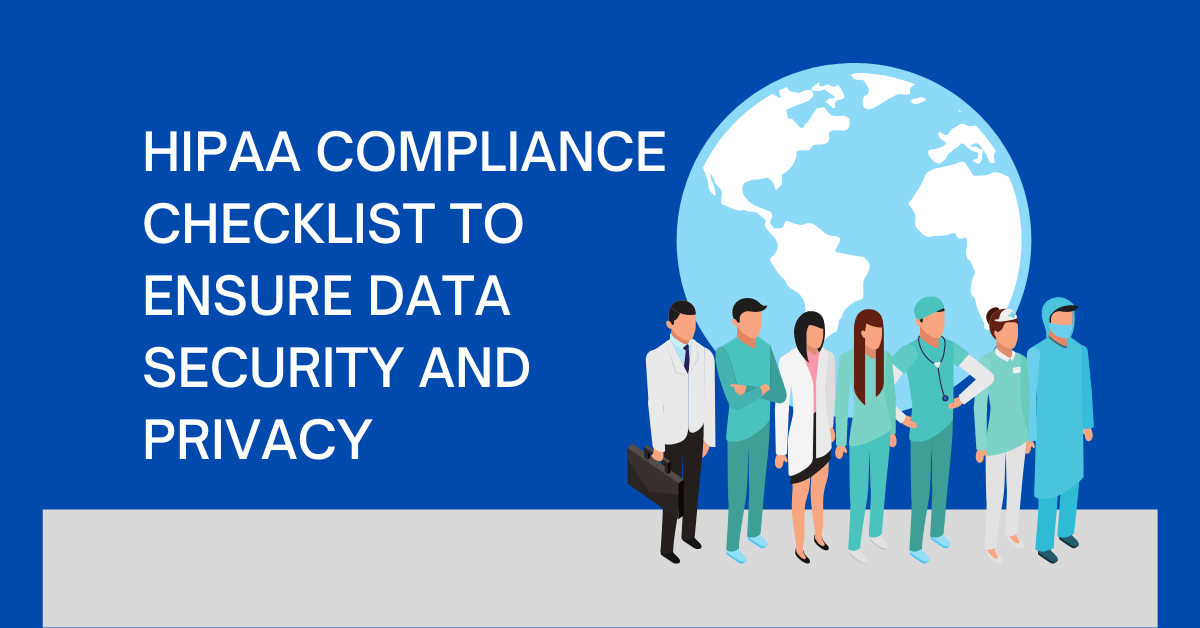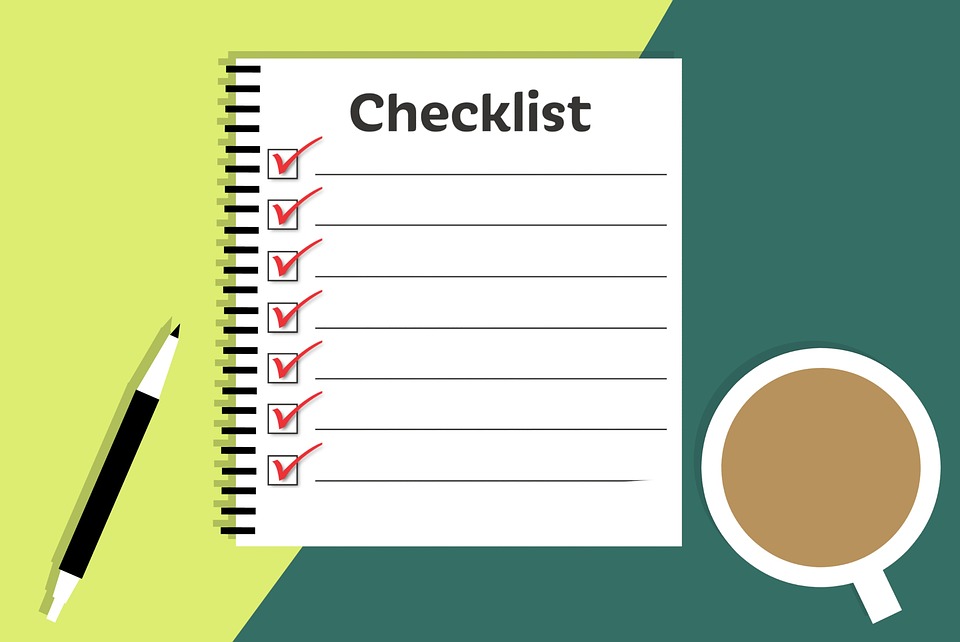This post will show you the HIPAA compliance checklist to ensure data security and privacy. Read on!
HIPAA is a set of rules created by the US Department of Health and Human Services that are meant to protect patient’s privacy and security. These rules apply to any health care institution, including hospitals, clinics, doctors’ offices, pharmacies, nursing homes, and other health care providers.
The HIPAA Compliance Checklist is a list of guidelines that every healthcare provider should follow in order to be compliant with HIPAA regulations. It lists the things that must be done in order to maintain compliance with HIPAA standards.
HIPAA stands for Health Insurance Portability and Accountability Act. It is a health care law that protects the privacy of healthcare information held by healthcare providers. A HIPAA compliance checklist is a document that helps organizations to comply with HIPAA regulations. HIPAA is a US law that protects the privacy and security of personal health information.
It also establishes rules for how personal health information can be used and shared among healthcare providers, health plans, and others who work with patients’ medical records.
The HIPAA Compliance Software helps organizations meet HIPAA requirements by providing them with compliance tools such as security risk assessments, audits, data loss prevention reports, breach investigations, encryption key management, and more.
Table of Contents
HIPAA Compliance Checklist To Ensure Data Security And Privacy
Understanding HIPAA Privacy Rule
The Health Insurance Portability and Accountability Act (HIPAA) Privacy Rule is a set of rules specifically put in place to protect patient information.
Under the privacy rule, patients must give their written consent for healthcare providers to release any personal health information.
The rule also includes security safeguards and authorization requirements for entities that handle this data, such as healthcare providers and business associates.
Determine If HIPAA Privacy Rules Affect You
HIPAA privacy rules apply to all healthcare providers and any entity that may store or maintain protected health information (PHI). If you are a HIPAA-covered entity, you must comply with the HIPAA privacy rules.
READ ALSO: Differences Between CCPA And GDPR Compliance
HIPPA Protect The Right Types Of Patient Data
HIPAA is a health privacy law that protects the right types of patient data. It covers nearly every aspect of data privacy, including how it can be collected and used. Many organizations and laws are in place to protect this type of information.
Prevent Potential HIPAA Violations
HIPAA violations can be costly. These violations could include fines, lost revenue, and higher employee turnover. It’s necessary to stay on top of your HIPAA compliance.
One of the most important things to remember is that HIPAA laws exist to protect patients’ information. If a patient’s information falls into the wrong hands, these laws can be broken and patient privacy compromised. Implementing strong sensitive data protection practices, such as document redaction, is an effective way to minimize these risks.
Be Aware Of Fines And Penalties for HIPAA Compliance
HIPAA compliance is a must for any business. With the growing number of new federal regulations being passed, it is becoming more critical than ever to ensure businesses are following all the guidelines for HIPAA.
Many companies have been fined for failing to comply with HIPAA regulations meant to protect patient privacy. These fines can be as high as $50,000.
READ ALSO: The Importance of HIPAA-Compliant Fax Solutions for Healthcare Providers
Frequently Asked Questions (FAQs) About HIPAA Compliance:
What is considered PHI (protected health information) under HIPAA?
PHI includes any individually identifiable information that relates to a patient’s past, present, or future physical or mental health condition, provision of healthcare services, or payment for those services.
Who must comply with HIPAA?
HIPAA applies to “covered entities” which include healthcare providers, health plans, and healthcare clearinghouses that transmit patient information electronically.
What are the penalties for HIPAA violations?
HIPAA violations can result in significant fines, corrective action plans, and even criminal charges in severe cases.
How can I report a potential HIPAA violation?
You can report a potential HIPAA violation to the Department of Health and Human Services (HHS) Office for Civil Rights (OCR).
READ ALSO: Bridging the Gap Between Patient Care and Advanced Data Encryption Standards
Do I need a lawyer to achieve HIPAA compliance?
While consulting a lawyer specializing in healthcare law can be beneficial, it’s not always necessary for small or medium-sized practices. Utilize resources from HHS OCR and industry associations for guidance.
Are there any resources available to help me comply with HIPAA?
The Department of Health and Human Services (HHS) Office for Civil Rights (OCR) offers a wealth of resources, including implementation guides, sample policies, and training materials to help you comply with HIPAA regulations.
By following this checklist and addressing the FAQs, you can establish a strong foundation for HIPAA compliance within your healthcare organization. Remember, HIPAA compliance is an ongoing process, so regularly review your procedures and adapt them as needed to ensure continued protection of sensitive patient information.
READ ALSO: How Does Technology Improve Healthcare?
Final Thoughts
HIPAA compliance is a must for all healthcare providers. It ensures that the data stored in the healthcare system is safe and secure. A HIPAA compliance checklist is a document that guides how to ensure HIPAA compliance.
The document outlines what needs to be done to ensure data security and privacy. Different HIPAA Compliance Software can be used for this purpose as well. For more related blog posts, please keep visiting our website.
INTERESTING POSTS
- Internet Safety Rules Checklist [MUST READ]
- 5 Checklist For Choosing A VPN Service Provider
- Exploring Cloud Solutions for Health IT: A Guide to HIPAA-Compliant
- Basic Tips To Ensure Online Safety
- What Should I Know About IP Address Management Systems?
- Implementing SaaS Security – A Checklist
- Top 10 Cybersecurity Tips For Students
- Best Movie Ringtone Download: Get Access To Unlimited Ringtones With Snaptube
About the Author:
Daniel Segun is the Founder and CEO of SecureBlitz Cybersecurity Media, with a background in Computer Science and Digital Marketing. When not writing, he's probably busy designing graphics or developing websites.







